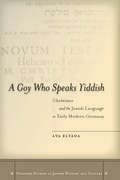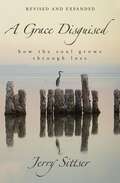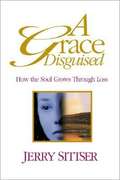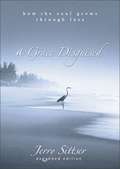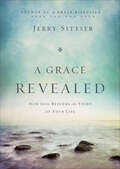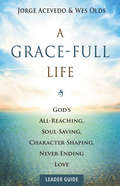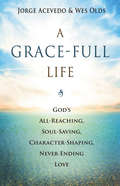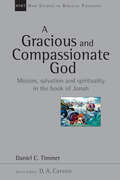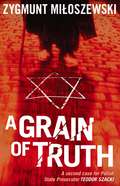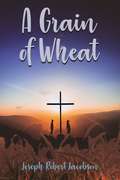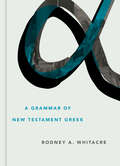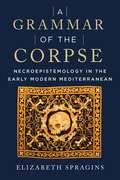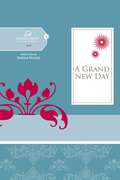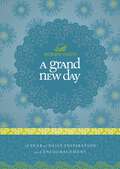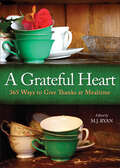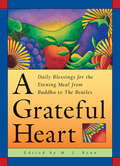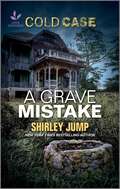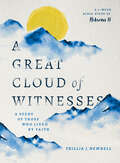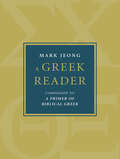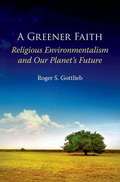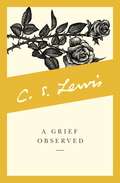- Table View
- List View
A Goy Who Speaks Yiddish: Christians and the Jewish Language in Early Modern Germany
by Aya ElyadaThis book explores the unique phenomenon of Christian engagement with Yiddish language and literature from the beginning of the sixteenth century to the late eighteenth century. By exploring the motivations for Christian interest in Yiddish, and the differing ways in which Yiddish was discussed and treated in Christian texts,A Goy Who Speaks Yiddishaddresses a wide array of issues, most notably Christian Hebraism, Protestant theology, early modern Yiddish culture, and the social and cultural history of language in early modern Europe. Elyada's analysis of a wide range of philological and theological works, as well as textbooks, dictionaries, ethnographical writings, and translations, demonstrates that Christian Yiddishism had implications beyond its purely linguistic and philological dimensions. Indeed, Christian texts on Yiddish reveal not only the ways in which Christians perceived and defined Jews and Judaism, but also, in a contrasting vein, how they viewed their own language, religion, and culture.
A Grace Disguised Revised and Expanded: How the Soul Grows through Loss
by Jerry L. SittserWith vulnerability and honesty, Jerry Sittser walks through his own grief and loss to show that new life is possible--one marked by spiritual depth, joy, compassion, and a deeper appreciation of simple and ordinary gifts. This 25th anniversary edition features a new introduction and two additional chapters, one which provides help for pastors and counselors.Loss came suddenly for Jerry Sittser. In an instant, a tragic car accident claimed three generations of his family: his mother, his wife, and his young daughter. While most of us will not experience such a catastrophic loss in our lifetime, all of us will face some kind of loss in life. But we can, if we choose, know the grace that transforms us.Whether your suffering has come in the form of chronic illness, disability, divorce, unemployment, crushing disappointment, or the loss of someone you love, Sittser will help you put your thoughts into words in a way that will guide you deeper into your own healing process.This revised edition of A Grace Disguised plumbs the depths of our sorrows, asks questions many people are afraid to ask, and provides hope in its answers:Will the pain ever subside?Will my life ever be good again?Will the depression ever lift?Will I ever overcome the bitterness I feel?What is God's plan in all of this?The circumstances are not important; what we do with those circumstances is. In coming to the end of ourselves, we can come to the beginning of a new life.
A Grace Disguised: How the Soul Grows Through Loss
by Gerald L. SittserIn an instant, an accident took the author's mother, wife and young daughter. How can we begin with a new life, one with joy, depth and compassion?
A Grace Disguised: How the Soul Grows through Loss
by Jerry L. SittserAn expanded edition of this classic book on grief and loss—with a new preface and epilogue. Loss came suddenly for Jerry Sittser. In an instant, a tragic car accident claimed three generations of his family: his mother, his wife, and his young daughter. While most of us will not experience such a catastrophic loss in our lifetime, all of us will taste it. And we can, if we choose, know as well the grace that transforms it. A Grace Disguised plumbs the depths of sorrow, whether due to illness, divorce, or the loss of someone we love. The circumstances are not important; what we do with those circumstances is. In coming to the end of ourselves, we can come to the beginning of a new life—one marked by spiritual depth, joy, compassion, and a deeper appreciation of simple blessings.
A Grace Revealed: How God Redeems the Story of Your Life
by Jerry SittserTwenty years ago, Jerry Sittser lost his daughter, wife, and mother in a car accident. He chronicled that tragic experience in A Grace Disguised, a book that has become a classic on the topic of grief and loss.Now he asks: How do we live meaningfully, even fruitfully, in this world and at the same time long for heaven? How do we respond to the paradox of being a new creature in Christ even though we don’t always feel or act like one? How can we trust God is involved in our story when our circumstances seem to say he isn’t?While A Grace Disguised explored how the soul grows through loss, A Grace Revealed brings the story of Sittser’s family full circle, revealing God’s redeeming work in the midst of circumstances that could easily have destroyed them. As Sittser reminds us, our lives tell a good story after all. A Grace Revealed will helps us understand and trust that God is writing a beautiful story in our own lives.
A Grace-Full Life Leader Guide: God's All-Reaching, Soul-Saving, Character-Shaping, Never-Ending Love (A Grace-Full Life)
by Jorge Acevedo Wes OldsGrace is God's all-reaching, never-ending, game-changing love for you and me. In this series, Jorge Acevedo and Wes Olds examine God's Word and discover how grace works in our lives and in our world. A Grace-Full Life seeks to answer the questions: In what ways is God an ever-present God?, Why does God want to have a personal relationship with me?, How can I fully experience and respond to God's grace?, How can I die well surrounded by God's grace?. Themes include: Prevenient grace: God's wooing or drawing grace Justifying grace: God's saving grace Sanctifying grace: God's grace that makes us more like Jesus Glorifying grace: God's grace that welcomes us to eternity The Leader Guide contains everything needed to guide a group through the four-week study including session plans and discussion questions, as well as multiple format options.
A Grace-Full Life: God's All-Reaching, Soul-Saving, Character-Shaping, Never-Ending Love (A Grace-Full Life)
by Wes OldsGrace is God's all-reaching, never-ending, game-changing love for you and me. In this series, Jorge Acevedo and Wes Olds examine God's Word and discover how grace works in our lives and in our world. A Grace-Full Life seeks to answer the questions: In what ways is God an ever-present God?, Why does God want to have a personal relationship with me?, How can I fully experience and respond to God's grace?, How can I die well surrounded by God's grace?. Themes include: Prevenient grace: God's wooing or drawing grace Justifying grace: God's saving grace Sanctifying grace: God's grace that makes us more like Jesus Glorifying grace: God's grace that welcomes us to eternity Additional components for a four-week study include a comprehensive leader guide and a DVD featuring authors and pastors Jorge Acevedo and Wes Olds.
A Gracious and Compassionate God: Mission, Salvation and Spirituality in the Book of Jonah (New Studies in Biblical Theology #Volume 26)
by Daniel C. TimmerThe book of Jonah is arguably just as jarring for us as it was for the ancients. Ninevah's repentance, Jonah's estrangement from God and the book's bracing moral conclusion all pose unsettling questions for today's readers. For biblical theologians, Jonah also raises tough questions regarding mission and religious conversion. Here, Daniel Timmer embarks on a new reading of Jonah in order to secure its ongoing relevance for biblical theology. After an examination of the book?s historical backgrounds (in both Israel and Assyria), Timmer discusses the biblical text in detail, paying special attention to redemptive history and its Christocentric orientation. Timmer then explores the relationship between Israel and the nations—including the question of mission—and the nature of religious conversion and spirituality in the Old Testament. This New Studies in Biblical Theology volume concludes with an injunction for scholars and lay readers to approach Jonah as a book written to facilitate spiritual change in the reader. Addressing key issues in biblical theology, the works comprising New Studies in Biblical Theology are creative attempts to help Christians better understand their Bibles. The NSBT series is edited by D. A. Carson, aiming to simultaneously instruct and to edify, to interact with current scholarship and to point the way ahead.
A Grain of Truth
by Antonia Lloyd-Jones Zygmunt Miloszewski"A Grain of Truth, like every great crime novel, digs up more unsettling questions than it does answers; it also demonstrates the seemingly endless possibilities of the form itself to serve as smart social criticism." --Maureen Corrigan, on NPR's Fresh AirPraise for the first novel in the Teodor Szacki series:"In Entanglement Miloszewski takes an engaging look at modern Polish society in this stellar first in a new series starring Warsaw prosecutor Teodor Szacki. Readers will want to see more of the complex, sympathetic Szacki."-Publishers WeeklyIt is spring 2009, and prosecutor Szacki is no longer working in Warsaw-he has said goodbye to his family and to his career in the capital and moved to Sandomierz, a picturesque town full of churches and museums. Hoping to start a "brave new life," Szacki instead finds himself investigating a strange murder case in surroundings both alien and unfriendly.The victim is found brutally murdered, her body drained of blood. The killing bears the hallmarks of legendary Jewish ritual slaughter, prompting a wave of anti-Semitic paranoia in the town, where everyone knows everyone. The murdered woman's husband is bereft, but when Szacki discovers that she had a lover, the husband becomes the prime suspect. Before there's time to arrest him, he is found murdered in similar circumstances. In his investigation Szacki must wrestle with the painful tangle of Polish-Jewish relations and something that happened more than sixty years earlier.Zygmunt Miloszewski was born in Warsaw, Poland, in 1975. His first novel The Intercom was published in 2005 to high acclaim. In 2006 he published The Adder Mountains; in 2010, the crime novel Entanglement; and this year its sequel, A Grain of Truth.
A Grain of Wheat
by Joseph JacobsonThis is the story of how a brilliant but disillusioned man moves from a self-absorbed childhood and adolescence to a dramatic awakening to a life of love and duty that draws him out of himself and plunges him into the world of pure science as his way of serving God and neighbour. The reader journeys with him every step of the way, experiencing with him his two great personal loves, his apparent triumphs, his devastating losses, his shocking moments of confrontation with bitter truth, and his final victory. In the course of this great adventure, the false assumptions on which so much of modern Western society is based crumble out from under him, and out of his disillusionment and despair emerges for him the one Glory which does not crumble away. Set in the American Middle-West in the first half of the Twentieth Century, this novel probes many of the issues that we face today and puts them in the context of God&’s unfolding plan for humanity.
A Grammar of New Testament Greek (Eerdmans Language Resources)
by Rodney A. WhitacreA reader&’s guide to the morphology and syntax of Koine Greek From the pen of a seasoned instructor of biblical Greek, this book functions as both an essential resource for second-year students and an invaluable asset for all readers as they continue to hone and deepen their linguistic skills. It begins with a basic overview of the language for new learners and for those looking for a brief refresher before moving into nuanced matters of morphology and syntax. Whitacre&’s aim is ultimately to help readers understand the subtleties of the language on the pages of the New Testament; thus, he engages with the biblical text both grammatically and exegetically, so that readers can experience its full power and beauty. Including numerous illustrative examples throughout and several useful appendices at the end, A Grammar of New Testament Greek is indispensable both as a textbook and as a reference for all readers of the Greek New Testament—and other texts written in Koine, such as the Septuagint and the Apostolic Fathers.
A Grammar of the Corpse: Necroepistemology in the Early Modern Mediterranean
by Elizabeth SpraginsNo matter when or where one starts telling the story of the battle of al-Qasr al-Kabir (August 4, 1578), the precipitating event for the formation of the Iberian Union, one always stumbles across dead bodies—rotting in the sun on abandoned battlefields, publicly displayed in marketplaces, exhumed and transported for political uses. A Grammar of the Corpse: Necroepistemology in the Early Modern Mediterranean proposes an approach to understanding how dead bodies anchored the construction of knowledge within early modern Mediterranean historiography.A Grammar of the Corpse argues that the presence of the corpse in historical narrative is not incidental. It fills a central gap in testimonial narrative: providing tangible evidence of the narrator’s reliability while provoking an affective response in the audience. The use of corpses as a source of narrative authority mobilizes what cultural historians, philosophers, and social anthropologists have pointed to as the latent power of the dead for generating social and political meaning and knowledge. A Grammar of the Corpse analyzes the literary, semiotic, and epistemological function these bodies serve within text and through language. It finds that corpses are indexically present and yet disturbingly absent, a tension that informs their fraught relationship to their narrators’ own bodies and makes them useful but subversive tools of communication and knowledge.A Grammar of the Corpse complements recent work in medieval and early modern Iberian and Mediterranean studies to account for the confessional, ethnic, linguistic, and political diversity of the region. By reading Arabic texts alongside Portuguese and Spanish accounts of this key event, the book responds to the fundamental provocation of Mediterranean studies to work beyond the linguistic limitations of modern national boundaries.
A Grand Design
by Amber StocktonWhen Alyssa Denham, a single career woman, wins a romantic getaway for two on Mackinac Island, she gives her carefree best friend a call. Together, they tour the old shops, eateries, and hidden treasures of the quaint island while helping Alyssa's grandmother piece together an heirloom quilt. Their quest gains them entrance into the homes of many longtime residents of the island, areas of the city that are otherwise off limits to tourists. As the quilt's story takes shape, Alyssa gains amazing insight into her grandmother's life... and attracts the attention of the handsome Scott Whitman, an island resident in charge of hotel transportation. Will memories of her past keep Alyssa from letting go? Or will the quest to piece together the heirloom quilt restore Alyssa's fractured heart--and bring healing to her entire family?
A Grand Design
by Amber StocktonWhen Alyssa Denham, a single career woman, wins a fun getaway for two on Mackinac Island where her grandmother lives, she gives her carefree best friend a call. Together, they tour the old shops and hidden treasures of the quaint island while helping Alyssa's grandmother piece together an heirloom quilt. Their quest gains them entrance into the homes of many longtime residents of the island, parts of the city that are otherwise off limits to tourists. As the quilt's story takes shape, Alyssa gains amazing insight into her grandmother's life . . . and attracts the attention of the handsome Scott Whitman, an island resident in charge of hotel transportation. Will memories of her past keep Alyssa from letting go? Or will the quest to piece together the heirloom quilt restore Alyssa's fractured heart--and bring healing to her entire family?
A Grand New Day (Women of Faith Study Guide Series)
by Women of FaithGrow in intimacy with God through in-depth Bible study. Women of Faith®, renowned for its unique combination of personality and truth, offers fresh new messages in four new topical study guides in the popular Women of Faith® Study Guide Series. Each study guide, teeming with insights and quotes from the conference speakers, provides 12 weeks of Bible study and a leader's guide for small groups. A Grand New Day ties in to the 2009 conference theme: A Grand New Day.
A Grand New Day: A Full Year of Daily Inspiration and Encouragement
by Women Of FaithWake up! It's time to start your day with the amazing ladies from Women of Faith. Or hey, if you're a night owl there's no better way to finish your day. Either way, you now have a dose of love and wisdom for every day of the year. These women, as lighthearted as they are firmly rooted in Scripture, want to talk to you daily, give you insight from their lives, and empower you to live your life more fully. So dive in and get your daily dose . . . it'll do you good. Writers include Patsy Clairmont, Marilyn Meberg, and more.
A Grateful Heart: Daily Blessings for the Evening Meal from Buddha to The Beatles (Daily Blessings For The Evening Meal From Buddha To The Beat Ser.)
by M. J. RyanMealtime is a moment to give thanks—a collection of 365 blessings that &“traverses all spiritual traditions.&”—Library Journal Today there is a deep hunger for connection with ourselves, with nature, and with others, says life coach and New York Times-bestselling author of Attitudes of Gratitude M. J. Ryan. What A Grateful Heart offers, from a wide variety of spiritual disciplines and secular perspectives, is a way of satisfying that hunger by setting aside time before we eat to acknowledge the blessings in our lives. When we give thanks, we take our place in the great wheel of life, recognizing our connection to one another and to all of creation. Reclaim and enrich the tradition of pausing before the evening meal to give thanks. Drawing from a range of religious and cultural practices, the 365 blessings in this book celebrate friendship, love, peace, reconciliation, the body, nature, joy, and appreciation of the moment. This illustrated feast for the mind includes quotations from Martin Luther King Jr., Thich Nhat Hanh, Gandhi, Rumi, Mother Teresa, Helen Keller, Denise Levertov, the Bible, and the Tao Te Ching, among many others. M.J. Ryan wrote A Grateful Heart to encourage families to share the experience of being part of something greater than themselves. With that in mind, the book includes 365 traditional and nontraditional blessings organized into four sections corresponding to the seasons.
A Grateful Heart: Daily Blessings for the Evening Meals from Buddha to The Beatles (Daily Blessings For The Evening Meal From Buddha To The Beat Ser.)
by M. J. RyanMealtime is a moment to give thanks—a collection of 365 blessings that &“traverses all spiritual traditions.&” —Library Journal Today there is a deep hunger for connection with ourselves, with nature, and with others, says life coach and New York Times-bestselling author of Attitudes of Gratitude M. J. Ryan. What A Grateful Heart offers, from a wide variety of spiritual disciplines and secular perspectives, is a way of satisfying that hunger by setting aside time before we eat to acknowledge the blessings in our lives. When we give thanks, we take our place in the great wheel of life, recognizing our connection to one another and to all of creation. Reclaim and enrich the tradition of pausing before the evening meal to give thanks. Drawing from a range of religious and cultural practices, the 365 blessings in this book celebrate friendship, love, peace, reconciliation, the body, nature, joy, and appreciation of the moment. This illustrated feast for the mind includes quotations from Martin Luther King Jr., Thich Nhat Hanh, Gandhi, Rumi, Mother Teresa, Helen Keller, Denise Levertov, the Bible, and the Tao Te Ching, among many others. M.J. Ryan wrote A Grateful Heart to encourage families to share the experience of being part of something greater than themselves. With that in mind, the book includes 365 traditional and nontraditional blessings organized into four sections corresponding to the seasons.
A Grave Mistake
by Shirley JumpThe only way to clear her grandfather&’s nameIs to find a killer&’s buried secrets… Mia Beaumont will do anything for her grandfather—including going home to the Rocky Mountains to clear his name in a decades-old disappearance case. But when she uncovers a dead body, it raises more questions than answers. Now Mia and her ex, assistant district attorney Raylan Jones, are digging for the truth. But can she be sure the killer isn't someone she knows?New York Times Bestselling Author
A Great Cloud of Witnesses: A Study of Those Who Lived by Faith (A Study in Hebrews 11)
by Trillia J. NewbellRejuvenate your faith through the stories of the faithful.Throughout Scripture we find countless stories of God&’s faithfulness—we also find countless stories of the people who remained faithful to Him. To strengthen and deepen your own faith, enter the stories of God&’s imperfect yet faithful people in A Great Cloud of Witnesses, a six- or eight-week Bible study by Trillia Newbell. This study dives into Hebrews 11, examining the lives of Rahab, Enoch, Gideon, Sarah, and many more whose faiths withstood the tests of their days. Each devotional invites you into the lives of ordinary people who lived by faith and concludes with reflection questions so that you can consider how your story connects with those found in Scripture. By studying the great cloud of witnesses found in Hebrews 11, and others who have gone before us, you will learn to imitate their faith while clinging to the One who is always faithful as you run the race God has set before you.
A Great Cloud of Witnesses: A Study of Those Who Lived by Faith (A Study in Hebrews 11)
by Trillia J. NewbellRejuvenate your faith through the stories of the faithful.Throughout Scripture we find countless stories of God&’s faithfulness—we also find countless stories of the people who remained faithful to Him. To strengthen and deepen your own faith, enter the stories of God&’s imperfect yet faithful people in A Great Cloud of Witnesses, a six- or eight-week Bible study by Trillia Newbell. This study dives into Hebrews 11, examining the lives of Rahab, Enoch, Gideon, Sarah, and many more whose faiths withstood the tests of their days. Each devotional invites you into the lives of ordinary people who lived by faith and concludes with reflection questions so that you can consider how your story connects with those found in Scripture. By studying the great cloud of witnesses found in Hebrews 11, and others who have gone before us, you will learn to imitate their faith while clinging to the One who is always faithful as you run the race God has set before you.
A Greek Reader: Companion to A Primer of Biblical Greek (Eerdmans Language Resources)
by Mark JeongA companion resource for use with N. Clayton Croy&’s Primer of Biblical Greek, featuring dozens of simple, enjoyable narratives to reinforce the content and skills introduced by Croy. Too often, Greek readers include difficult primary texts encumbered with glosses, but this reader from Mark Jeong is instead comprised of originally written texts keyed to the vocabulary and grammar taught in Clayton Croy&’s Primer of Biblical Greek. Thus fluent, comprehensive reading—rather than painstaking translation—can be the goal. In addition to providing useful practice, Jeong&’s engaging narratives will help students of Greek grasp the nuances of particularly complicated aspects of Koine—such as the imperfect tense—by allowing them to see the language &“in action&” in various textual situations. Each narrative also follows a larger story about the adventures of Philemon, Onesimus, and Paul, making for enjoyable reading that better prepares one for the daunting task of eventually reading the Greek New Testament.
A Greener Faith: Religious Environmentalism and Our Planet's Future
by Roger S. GottliebIn a time of darkening environmental prospects, frightening religious fundamentalism, and moribund liberalism, the remarkable and historically unprecedented rise of religious environmentalism is a profound source of hope. In A Greener Faith , Roger S. Gottlieb chronicles the promises of this critically important movement, illuminating its principal ideas, leading personalities, and ways of connecting care for the earth with justice for human beings. He also shows how religious environmentalism breaks the customary boundaries of "religious issues" in political life. Asserting that environmental degradation is sacrilegious, sinful, and an offense against God catapults religions directly into questions of social policy, economic and moral priorities, and the overall direction of secular society. Gottlieb contends that a spiritual perspective applied to the Earth provides the environmental movement with a uniquely appropriate way to voice its dream of a sustainable and just world. Equally important, it helps develop a world-making political agenda that far exceeds interest group politics applied to forests and toxic incinerators. Rather, religious environmentalism offers an all-inclusive vision of what human beings are and how we should treat each other and the rest of life. <p><p> Gottlieb deftly analyzes the growing synthesis of the movement's religious, social, and political aspects, as well as the challenges it faces in consumerism, fundamentalism, and globalization. Highly engaging and passionately argued, this book is an indispensable resource for people of faith, environmentalists, scholars, and anyone who is concerned about our planet's future.
A Grief Observed (Faber Paperbacks Ser.)
by C. S. LewisWritten after his wife's tragic death as a way of surviving the "mad midnight moment," A Grief Observed is C.S. Lewis's honest reflection on the fundamental issues of life, death, and faith in the midst of loss. This work contains his concise, genuine reflections on that period: "Nothing will shake a man -- or at any rate a man like me -- out of his merely verbal thinking and his merely notional beliefs. He has to be knocked silly before he comes to his senses. Only torture will bring out the truth. Only under torture does he discover it himself." This is a beautiful and unflinchingly homest record of how even a stalwart believer can lose all sense of meaning in the universe, and how he can gradually regain his bearings.
A Grief Unveiled: Fifteen Years Later
by Gregory FloydA candid account of sudden grief and faith that has inspired thousands Gregory Floyd's journey through grief after the tragic death of his youngest son recounts the full impact of such a loss on a typical Catholic family. In this expanded edition, he more than ever before allows the reader into his heart as he grapples with emotions that question the goodness of God in the midst of unbearable grief. He also answers the question: What is it like to live with such grief ten, fifteen, twenty years later? With brutal honesty, this loving father openly reveals the depths of his pain as he struggles to maintain faith and provide leadership for his family. He also reflects as he watches his other children mature, get married, and begin their own independent lives in the time since his son's death. Each of the children adds his and her own brief reflections in a special appendix to this important volume.
